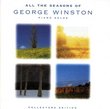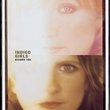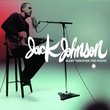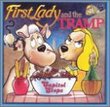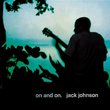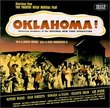| All Artists: Arthur Sullivan, Arthur Jackson, Thomas Lawlor, Ralph Mason, Valerie Masterson, Donald Adams, John Reed, Christene Palmer, John Ayldon, Pauline Walkes, James Walker, Royal Philharmonic Orchestra Title: Phase 4 Stereo: Gilbert & Sullivan: HMS Pinafore / D'Oyly Carte Opera Company Members Wishing: 0 Total Copies: 0 Label: Decca Release Date: 11/11/1997 Album Type: Original recording remastered, Extra tracks Genres: Soundtracks, Classical, Broadway & Vocalists Styles: Opera & Classical Vocal, Historical Periods, Modern, 20th, & 21st Century, Musicals Number of Discs: 2 SwapaCD Credits: 2 UPC: 028945516028 |
Search - Arthur Sullivan, Arthur Jackson, Thomas Lawlor :: Phase 4 Stereo: Gilbert & Sullivan: HMS Pinafore / D'Oyly Carte Opera Company
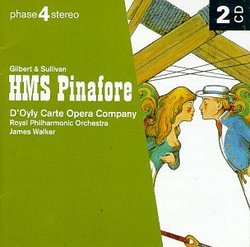 | Arthur Sullivan, Arthur Jackson, Thomas Lawlor Phase 4 Stereo: Gilbert & Sullivan: HMS Pinafore / D'Oyly Carte Opera Company Genres: Soundtracks, Classical, Broadway & Vocalists
|
Larger Image |
CD DetailsSimilarly Requested CDs
|
CD ReviewsA much maligned joy! scaphio | Bristol, UK | 01/20/2001 (5 out of 5 stars) "This recording dating from 1971 is now realised on CD with superb sound quality. The cast was probably the last great line up of the late years of the former D'Oyly Carte Company.John Reed does appear tired and stale, this is due to the closeness of the recording making for a 'radio broadcast' effect. Thomas Lawler as Capt Corcoran (at the time husband of Pauline Wales, Cousin Hebe) is excellent. I remember seeing this cast in performance, minus Valerie Masterson, who was brought in as guest artiste for the recording. They were superb then, with particular mention of the brilliant Christene Palmer (a fantastic Katisha in The Mikado), Arthur Jackson who had a great presence on stage and was a superb Pooh-Bah, his round tones suit admirably the role of Carpenters-Mate.Ralph Mason, as Ralph Rackstraw (pronounced as Rafe, a Victorian English idiosyncracy) made a superb attempt at all the parts he played in repertory, of particular note being Earl Tolloller in Iolanthe.This recording is worth the purchase to recall or find for the first time the last glimpses of this much lamented troupe. Except for the weak John Ayldon, Dick Deadeye, who does not have the satanic glitter of the late Donald Adams or Darrell Fancourt, the rest are superb. A pity the newer, yet fresher company does not have the subtlety of tradition or performance quality. Ah well, lack-a-day! we can't have everything...Can we?" A good Pinafore, bird, boards and brine included scaphio | 09/29/1998 (4 out of 5 stars) "This CD release of an early 70s recording has been given something of a reprieve from the original branding of it as "the most infamous Pinafore". The added sound effects of seagull, creaking timbers and the sea sloshing against the ship's sides seems mostly to have been forgiven. These aural props are only present between songs and when present provide a pleasant theatrical quality to the recording. D'Oyly Carte is in good form here and the close microphone Phase 4 recording makes audibility excellent - something Gilbert would have appreciated if the Savoy had offered anything as good." A Pinafore performance that deserves more acceptance Yi-Peng | Singapore | 11/25/2000 (4 out of 5 stars) "Ever since D'Oyly Carte made this wonderful recording of Pinafore in 1971, it has been given somewhat unfair critiques, including one that called it "infamous." That criticism came about because of the distorted sound on the original LP issue, but things seem to have improved with this CD reissue, allowing the performance to be heard more clearly. Nevertheless, the artistic distinction of the performance still manages to shine through brightly, and this alone can contribute to the winning appeal of its admirers.Even despite the fact that John Reed gives a memorable performance of the Ruler of the Queen's Navee, his portrayal seems to have deteriorated a little bit. This is due to the obvious staleness of his voice (well, it was a feature of all the D'Oyly Carte recordings that were made from the 1968 Pirates onwards, so you mustn't blame him!) and his deteriorating diction. Some of the words were not pronounced clearly, as in his character's famous comical autobiographical song, and there is evidence of sloppiness of hte notes in places. The other major drawback is John Ayldon's Deadeye. Like all D'Oyly Carte recordings to which he contributed, this one was ruined by the unpleasant gruffness of his voice. His portrayal seems not to match Donald Adams on every level. However, for the rest of the cast, there is much to please the ear. Thomas Lawlor makes as first-class a Captain as Jeffrey Stitch, Gordon Sandison or Thomas Allen, but even though he has a slightly heavy and dark-timbred voice, he nevertheless manages to remove it from this recording. He is certainly better suited to this role than to Deadeye, the role he played on the New Sadler's Wells recording. Ralph Mason makes a heady-toned Rackstraw, and he certainly is a joy to hear on record, determined to win the hand of Josephine, who is memorably characterised by the best G&S prima donna, Valerie Masterson. She sings with a full-blooded mature soprano voice with which she gives a melancholy air to her opening ballad and blood to her grand operatic scene. She is certainly better than Jean Hindmarsh, if only by a small margin, even though the twitter in the latter's voice does not hurt at all. And lastly, I would like to highlight the underrated Christene Palmer's fruity portrayal of Little Buttercup, which is on par with Gillian Knight and Felicity Palmer. The rest of the cast is splendid, the choral singing as well-disciplined as the orchestra, and James Walker paces the tempi nicely, with some small quibbles that don't matter a lot. The recording has transferred well to CD, and the sound effects kept to a minimum, to help give a sense of atmosphere. The dry recording is also characteristic of all D'Oyly Carte recordings made from their 1968 Pirates onwards. The major complaint is the Spectacular fill-ups which don't seem to fit in with Pinafore, as they are too improperly chosen and the tempi too slow. If the CD ends with The flowers that bloom in the spring, it does not give a definite sense of an ending.Overall, I would safely say that while this is not necessarily a first-choice, its artistic merits shine through compellingly to make it be one. Let me advise you to ignore the Spectacular items by programming them out. Anyone who wants a standard D'Oyly Carte performance will be well pleased with this."
|

 Track Listings (26) - Disc #1
Track Listings (26) - Disc #1